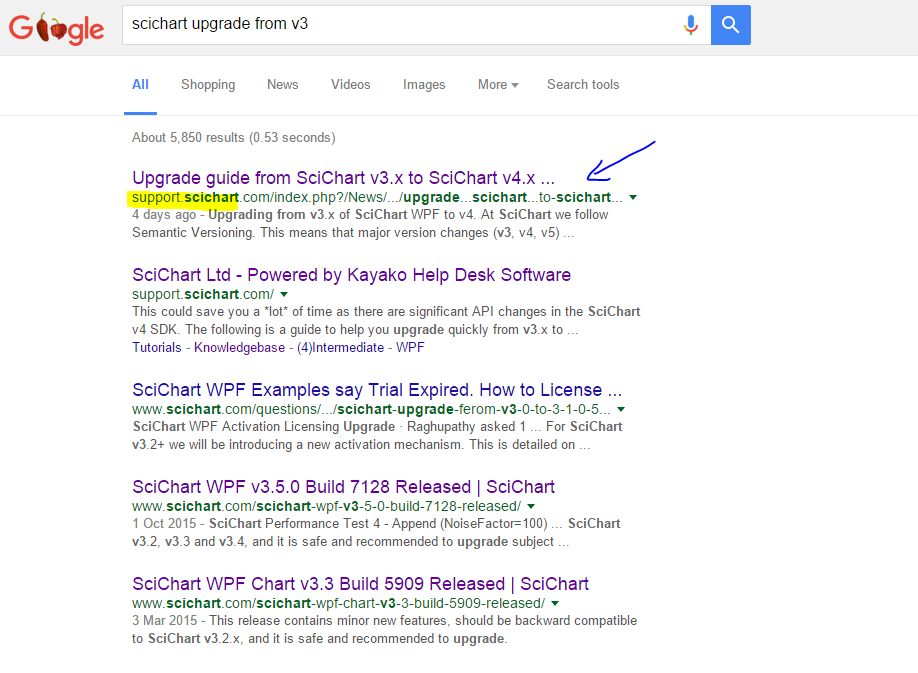I have a site which publishes blog articles.
The site has an RSS feed and the RSS feed is consumed by a support-ticket system:
This is necessary because some users only visit the support site and I want them to see the latest news. However ...
Google prioritizes links on the support site over the main site. I want to prioritize the main site (in fact, ignore RSS generated news articles on the support site) in search engines.
Example:
Google "scichart upgrade from v3"

I want the article on the main site to come up in google, but instead the article on the support site comes up first.
I have google webmaster tools set up + FTP access to both sites. How can I tell Google to ignore anything that starts with http://support.scichart.com/index.php?/News/ ?

Dissalowrule for your support links, andrel="nofollowattribute for the links in your site that point to your support section